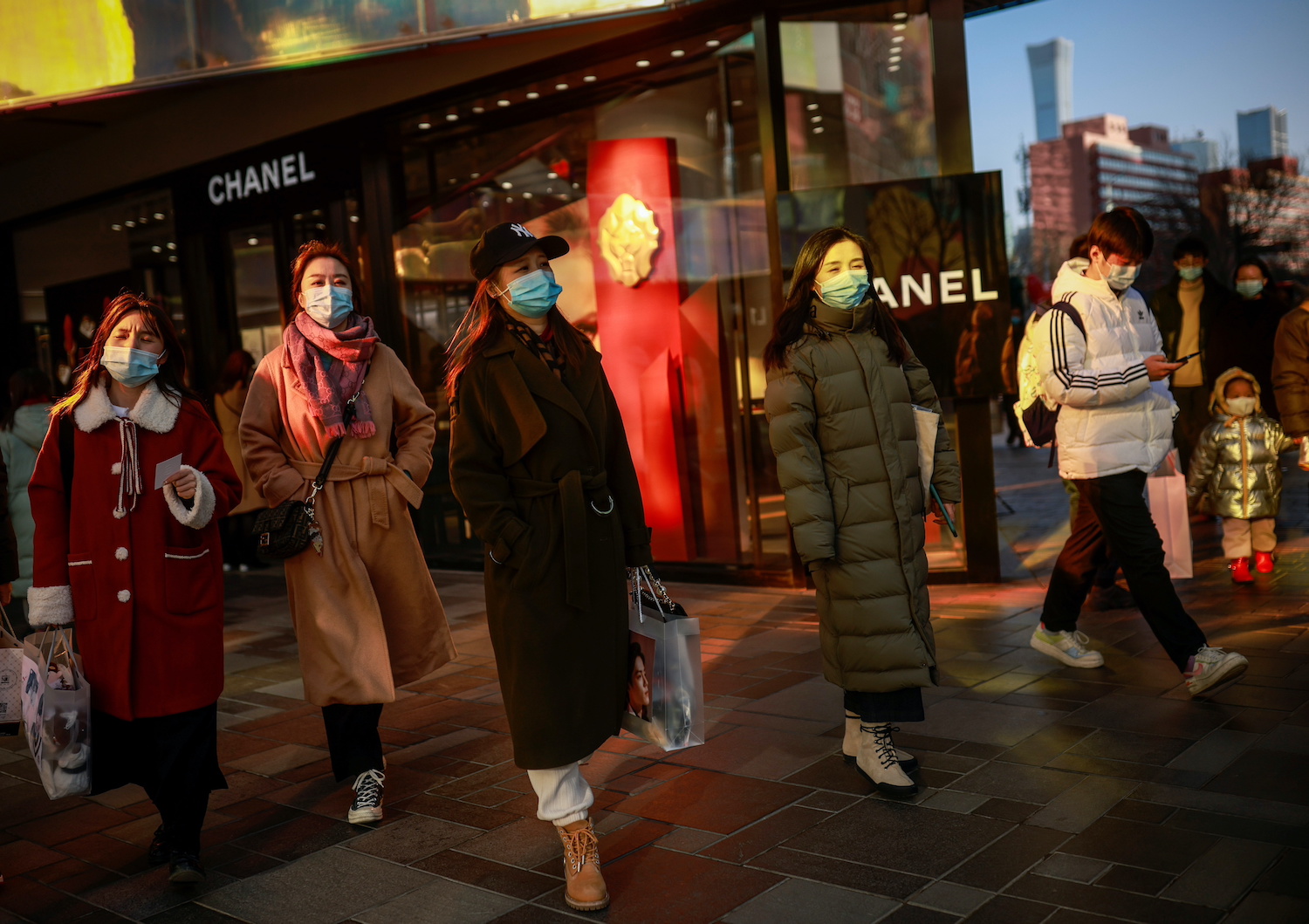(ATF) The “stay put in place to celebrate the Lunar New Year” order in China brought new trends in consumption – ‘virtual’ celebration, electronic red packets and online shopping – while data released by the Ministry of Commerce showed that retail and catering sales jumped almost a third from 2020 levels.
While the Lunar New Year consumption data serve as a gauge of the country’s economic recovery, Morgan Stanley forecasts a 19% year-on-year gross domestic product (GDP) growth in the first quarter (Q1) and a 9% growth for the full year.
Sales by key retail and catering companies, including online, came in at 821 billion yuan ($127 billion) from Feb. 11-17, according to data released by the Ministry of Commerce on Wednesday. That was up over 28% from the Lunar New Year holiday in 2020, when the coronavirus started to spread across China, and up 4.9% from 2019 levels.
Economists from Morgan Stanley noted that consumption growth has slowed, if one compared the 4.9% figure with the two-year rate of 12% between Q4 of last year and the same period of 2018.
Possible factors for the slower growth are reduced intercity travel, continued social distancing and longer-than-seasonal working hours, but the negative impact has been largely offset by “in town” activities such as movie watching, local scenic spot visits, as well as hotel staycations, they said.
Several weeks before the holiday, Chinese authorities called on migrant workers to stay put for Lunar New Year to prevent a potential resurgence in infections, after new Covid-19 outbreaks surfaced in northern China provinces such as Heibei and Heilongjiang. There are an estimated 277 million migrant workers in China, and for many of them the holiday is the only chance to go home.
Less travel, more movies
The largely heeded call saw a sharp fall in travel and a spike in cinema visits.
Cross-region transport remained weak during this year’s festive period, with the Baidu Qianxi index averaging 50-60% that of 2019.
Box office returns during the Lunar New Year exceeded 7 billion yuan ($1.1 billion), which is a historical high and equivalent to 34% of full-year revenue in 2020.
“The nation’s consumer market has shown many new characteristics and changes,” the ministry said, adding that its monitoring showed a trend towards “contactless” and safe consumption.
New consumer behaviour such as online shopping for festive goods, virtual tours, and family reunions via the “cloud” – online – emerged this year, the ministry said. More and more people also chose to watch fireworks and lantern shows online.
China’s retail sales for the January-February period this year will likely report double-digit growth, albeit from a low base in 2020, Betty Wang, Senior China Economist from ANZ Research, said.
“A key question is whether the job market will continue to recover and support the momentum in consumption,” she said.
Morgan Stanley, on the other hand, said the labour market conditions are close to fully normalized.
Thanks to China’s effective measures to contain Covid-19, manufacturing and services have rebounded quickly since Q2 of last year, allowing a quick snap-back in the job market.
The number of online job listings is about the same as pre-Covid levels, while income growth was 7.1% YoY in Q4 – close to the pre-Covid pace of 8.5%, Morgan Stanley said.
Besides strong consumption, the industrial sector is likely to get a boost because the “stay put” policy shortened the returns to work – many companies offered subsidies to encourage employees not to return home during the holiday and local reports revealed that production has resumed about 10 days earlier than in past years.
Given resilient Lunar New Year consumption and production, Morgan Stanley forecast a 9% YoY growth in China’s GDP this year – higher than the 8.1% forecast by the International Monetary Fund (IMF).
























